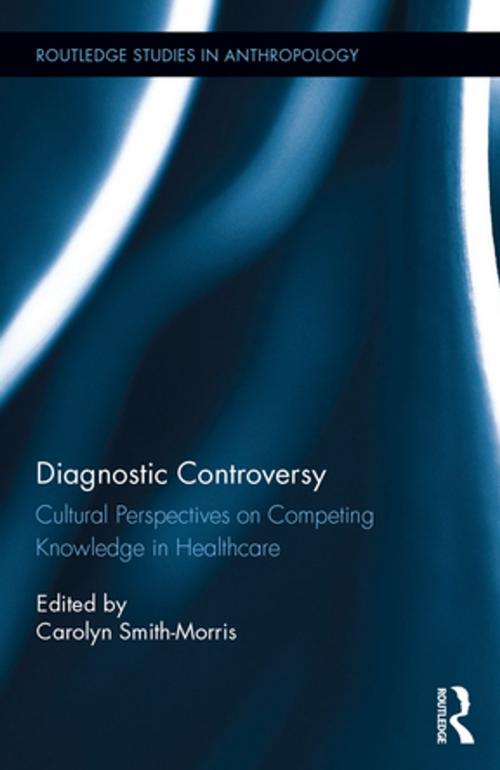Diagnostic Controversy
Cultural Perspectives on Competing Knowledge in Healthcare
Nonfiction, Health & Well Being, Medical, Patient Care, Diagnosis, Social & Cultural Studies, Social Science, Anthropology| Author: | ISBN: | 9781317383055 | |
| Publisher: | Taylor and Francis | Publication: | August 20, 2015 |
| Imprint: | Routledge | Language: | English |
| Author: | |
| ISBN: | 9781317383055 |
| Publisher: | Taylor and Francis |
| Publication: | August 20, 2015 |
| Imprint: | Routledge |
| Language: | English |
This collection is dedicated to the diagnostic moment and its unrivaled influence on encompassment and exclusion in health care. Diagnosis is seen as both an expression and a vehicle of biomedical hegemony, yet it is also a necessary and speculative tool for the identification of and response to suffering in any healing system. Social scientific studies of medicalization and the production of medical knowledge have revealed tremendous controversy within, and factitiousness at the outer parameters of, diagnosable conditions. Yet the ethnographically rich and theoretically complex history of such studies has not yet congealed into a coherent structural critique of the process and broader implications of diagnosis. This volume meets that challenge, directing attention to three distinctive realms of diagnostic conflict: in the role of diagnosis to grant access to care, in processes of medicalization and resistance, and in the transforming and transformative position of diagnosis for 21st-century global health. Smith-Morris’s framework repositions diagnosis as central to critical global health inquiry. The collected authors question specific diagnoses (e.g., Lyme disease, Parkinson's, andropause, psychosis) as well as the structural and epistemological factors behind a disease’s naming and experience.
This collection is dedicated to the diagnostic moment and its unrivaled influence on encompassment and exclusion in health care. Diagnosis is seen as both an expression and a vehicle of biomedical hegemony, yet it is also a necessary and speculative tool for the identification of and response to suffering in any healing system. Social scientific studies of medicalization and the production of medical knowledge have revealed tremendous controversy within, and factitiousness at the outer parameters of, diagnosable conditions. Yet the ethnographically rich and theoretically complex history of such studies has not yet congealed into a coherent structural critique of the process and broader implications of diagnosis. This volume meets that challenge, directing attention to three distinctive realms of diagnostic conflict: in the role of diagnosis to grant access to care, in processes of medicalization and resistance, and in the transforming and transformative position of diagnosis for 21st-century global health. Smith-Morris’s framework repositions diagnosis as central to critical global health inquiry. The collected authors question specific diagnoses (e.g., Lyme disease, Parkinson's, andropause, psychosis) as well as the structural and epistemological factors behind a disease’s naming and experience.















